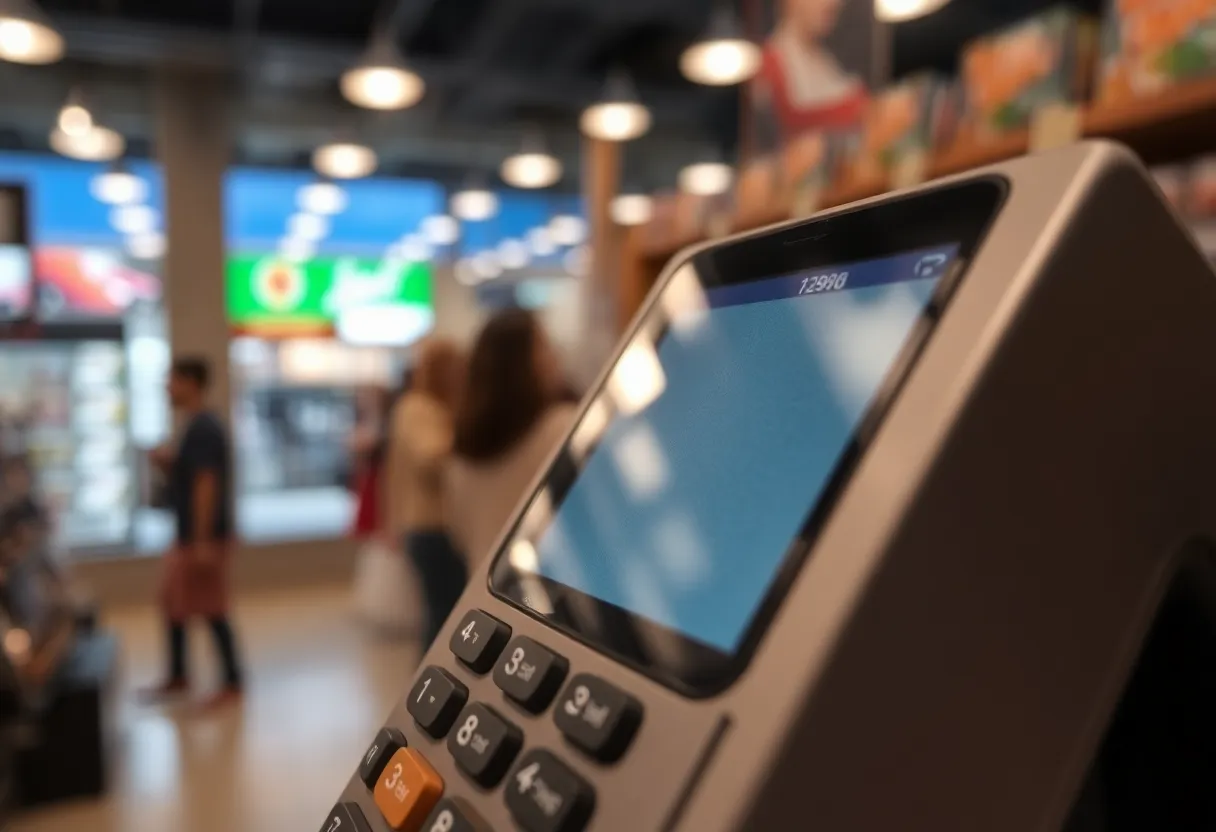Albuquerque, October 26, 2025
Residents of Albuquerque are on alert as local authorities report a significant increase in ghost tapping scams, with a 30% rise in such cases this month. Criminals are using hidden devices to skim data from contactless payment transactions in stores. The practice poses a severe risk to consumers as they may not notice unauthorized charges until it’s too late. Local police are enhancing patrols and advising merchants on prevention methods while urging shoppers to monitor their accounts closely. With tech-savvy criminals adapting quickly, vigilance is essential to combat this fraud.
Albuquerque Residents Warned of Rising Ghost Tapping Scams in Local Stores
Ghost tapping, a deceptive scam targeting users of contactless payment methods, has prompted urgent alerts from local authorities in Albuquerque. Criminals are deploying hidden devices in retail environments to capture card data during quick tap-to-pay transactions, leading to a significant uptick in financial fraud. This month alone, police have documented a 30% rise in such incidents, highlighting the growing threat to everyday shoppers relying on convenient payment technologies.
The scam operates stealthily: fraudsters install small, undetectable skimming devices near payment terminals in stores. When a customer taps their card or phone to pay, the device intercepts sensitive information like card numbers and expiration dates without any visible signs of interference. Victims may not notice the breach until unauthorized charges appear on their statements days or weeks later. Authorities emphasize that these attacks exploit the speed and ease of tap-to-pay systems, which are now ubiquitous in Albuquerque’s grocery stores, convenience shops, and larger retail chains.
Understanding the Mechanics of Ghost Tapping
To grasp how ghost tapping works, consider a typical shopping scenario. A person approaches a checkout counter, taps their credit card on the reader, and completes the purchase in seconds. Unbeknownst to them, a thin skimmer—often disguised as part of the terminal or hidden nearby—records the transaction data. This information can then be used to clone cards or make fraudulent online purchases. The term “ghost” refers to the invisible nature of the theft; there’s no physical contact or obvious tampering, making it particularly insidious.
Local police have responded by increasing patrols in high-traffic retail areas and educating merchants on detection methods. Store owners are advised to regularly inspect their payment systems for unusual attachments or modifications. Despite these efforts, the 30% rise in fraud cases this month underscores the challenge of staying ahead of tech-savvy criminals who adapt quickly to security measures.
Protective Measures Recommended for Shoppers
Experts urge Albuquerque residents to adopt simple habits to minimize risks. Monitoring bank and credit card accounts daily or weekly can help catch discrepancies early, allowing for swift reporting and reversal of charges. For transactions over a certain amount, switching to chip-and-PIN methods is advised, as these provide an additional layer of verification that’s harder for skimmers to bypass. Contactless payments remain safe when used judiciously, but combining them with alerts for unusual activity adds peace of mind.
Financial institutions in the area are also stepping up support, offering free tools like transaction notifications via apps or texts. Shoppers who suspect they’ve fallen victim should immediately contact their bank to freeze accounts and report the incident to police, who are tracking patterns to dismantle these operations.
Broader Context and Community Impact
The surge in ghost tapping reflects a nationwide trend in digital fraud, but its concentration in Albuquerque’s bustling commercial districts has raised local concerns. Retailers report that while most scams target individual consumers, repeated incidents can erode trust in payment systems and deter foot traffic. This is especially troubling for small businesses already navigating economic pressures, as they bear the brunt of customer worries without always having resources for advanced security upgrades.
Authorities note that education is key to combating this issue. Community workshops and signage in stores are being rolled out to inform the public about red flags, such as terminals that feel unusually bulky or transactions that take longer than expected. Long-term, there’s hope that evolving technology—like tokenization, which replaces card details with unique codes per transaction—will render skimming obsolete. Until then, vigilance remains the best defense.
As Albuquerque continues to embrace cashless convenience, the 30% rise in ghost tapping cases serves as a reminder that innovation comes with vulnerabilities. By staying informed and proactive, residents can protect their finances amid this evolving threat landscape. The combined efforts of law enforcement, retailers, and consumers will be crucial in curbing these scams and restoring confidence in everyday shopping.
Frequently Asked Questions (FAQ)
What is ghost tapping?
Ghost tapping is a scam where criminals use hidden devices to skim card data during contactless payments in Albuquerque stores.
How does ghost tapping work?
Criminals install small, undetectable skimming devices near payment terminals. When a customer taps their card or phone, the device captures information like card numbers and expiration dates.
Has there been an increase in ghost tapping incidents?
Police reported a 30% rise in such fraud cases this month in Albuquerque.
What can people do to protect themselves from ghost tapping?
Experts recommend monitoring accounts and using chip-and-PIN for higher-value transactions to stay safe.
Key Features of Ghost Tapping Scams
| Feature | Description |
|---|---|
| Target Method | Hidden devices skim data during tap-to-pay transactions in stores |
| Recent Trend | 30% rise in fraud cases this month |
| Risk to Users | Captures card numbers and expiration dates invisibly |
| Protection Tips | Monitor accounts; use chip-and-PIN for larger purchases |


